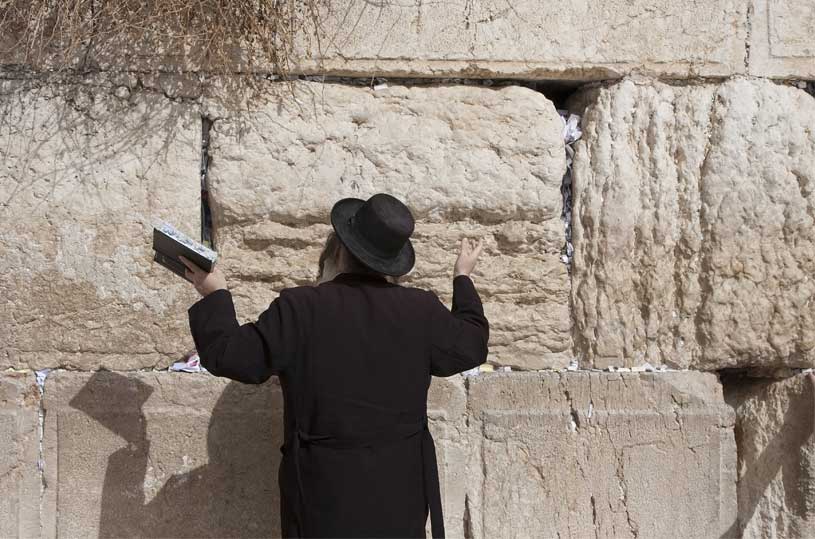There are two words that are used repeatedly throughout these verses—the word lo with an alef, which means “no,” and the word lo with a vav, which means “to him,” referring to giving. The word “Elul” is comprised of two words—lo with an alef and lo with a vav. During the month of Elul, we must turn the lo with an alef into the lo with a vav. Instead of being greedy, we must begin acting with generosity. If our hearts were closed, we must now open them to others.
This is actually the reason that Hakadosh Baruch Hu created the woman. As He said, “Lo (with an alef) tov heyos ha’adam levado. E’eseh lo (with a vav) ezer kenegdo” (Bereishis 2:18). If there is no one else with him, a man becomes selfish. Hashem therefore created the woman to teach the man how to give.
It is interesting to note that the only month in the Jewish calendar with a feminine mazal is the month of Elul, whose sign is a betulah. The mazalos of the other months are masculine, but the month of Elul is feminine. It is in a woman’s nature to nourish others, to feed them and to help them grow. The woman has a rechem, a womb, a word that has the same root as the word for mercy. And that, in essence, is the core of the month of Chodesh Elul—rachmanus, mercy. A question arises: Isn’t mercy an essential component of a Jew’s nature? It is written that the Jewish people have three central traits: they are bayshanim, rachmanim and gomlei chasadim (they have shame, they are merciful and they perform acts of kindness).
Why, then, does Hakadosh Baruch Hu have to remind us again and again to show mercy to others? There is a commandment in the Torah that no other religion has: “Aniyei beisecha kodmim, the impoverished of your own household come first.” Rashi writes in this week’s parshah that if there are many poor people in your city, you are required to assist the poor members of your own family first. This is an incredible concept that we do not see anywhere else, certainly not in Western law. One may actually wonder about it. What kind of commandment is this? In a sense, it seems almost selfish to help one’s own family first!
The Torah is teaching us something beautiful. Let’s say, for example, that there is a kind woman who has mercy on all the distressed people around her—on her friend whose son has left yeshivah and on another friend with shalom bayis problems. Her heart goes out to them, and she does everything she can to help them. However, this same woman, who so readily helps her distraught friend, may act with a certain amount of cruelty toward her own son who left yeshivah. And why doesn’t she show her own husband the same amount of tolerance, kindness and understanding? Therefore, the Torah commands us to have mercy on our own families. Hashem says to us: Am Yisrael, you are gomlei chasadim by nature. But you have another trait as well—bayshanus, shame. When your friend’s son or your student is suffering, you are able to help him because you don’t feel shame.
When your own son is suffering, however, or you are experiencing problems in your own marriage, or even health problems, you suddenly feel so ashamed. You may think to yourself, “How did this happen to me? How could this happen in my own family?” It is this shame that can cause you to act cruelly toward your children, because it is so difficult to admit that such a problem could occur in your own family. The three characteristics of a Jew must therefore go hand in hand. You are a bayshan, you have shame; it is so difficult to admit that you failed, that there is a problem in your family. The humiliation can be hard to bear. Still, you must act with mercy and kindness.
The mitzvah of “Aniyei beisecha kodmim,” assisting the impoverished members of your household first, is perhaps one of the most difficult mitzvos to fulfill properly. It means that you yourself must take the advice you so readily dispense to others, even though it can be extremely shameful to admit that you need it. Later on the pasuk (15:10) states: “Nason titen lo velo yeira levavcha besitcha lo ki biglal hadavar hazeh yevarachecha Hashem Elokecha.” If you have mercy on your own family members, Hashem will bless you.
The Or Hachaim Hakadosh explains the word biglal. The world, he says, is galgal, a wheel. The tides of life go around and around; what occurs in your friend’s family may happen in your own family one day. It is therefore incumbent upon us to feel the deep shame of others when we share advice and sympathy with them. Realize that when a friend confides in you and shares her struggles, she is full of shame. At times Hashem may help you experience your friend’s shame by testing your own family in a similar manner.
When you truly feel the shame of your friend, you will be able to help her, and even more than that—you will feel her humiliation and empathize with her in an authentic way. And that is the true Jewish combination. We are bayshanim—and also rachmanim and gomlei chasadim. When you have mercy on your own family members, it will transform you. You will become an empathic person. You will have the ability to help others in a real way because you won’t just be giving advice from an “expert’s” perspective. You will be empathizing on a personal level because you will feel their shame. And that is real rachmanus—a very beautiful thing.




